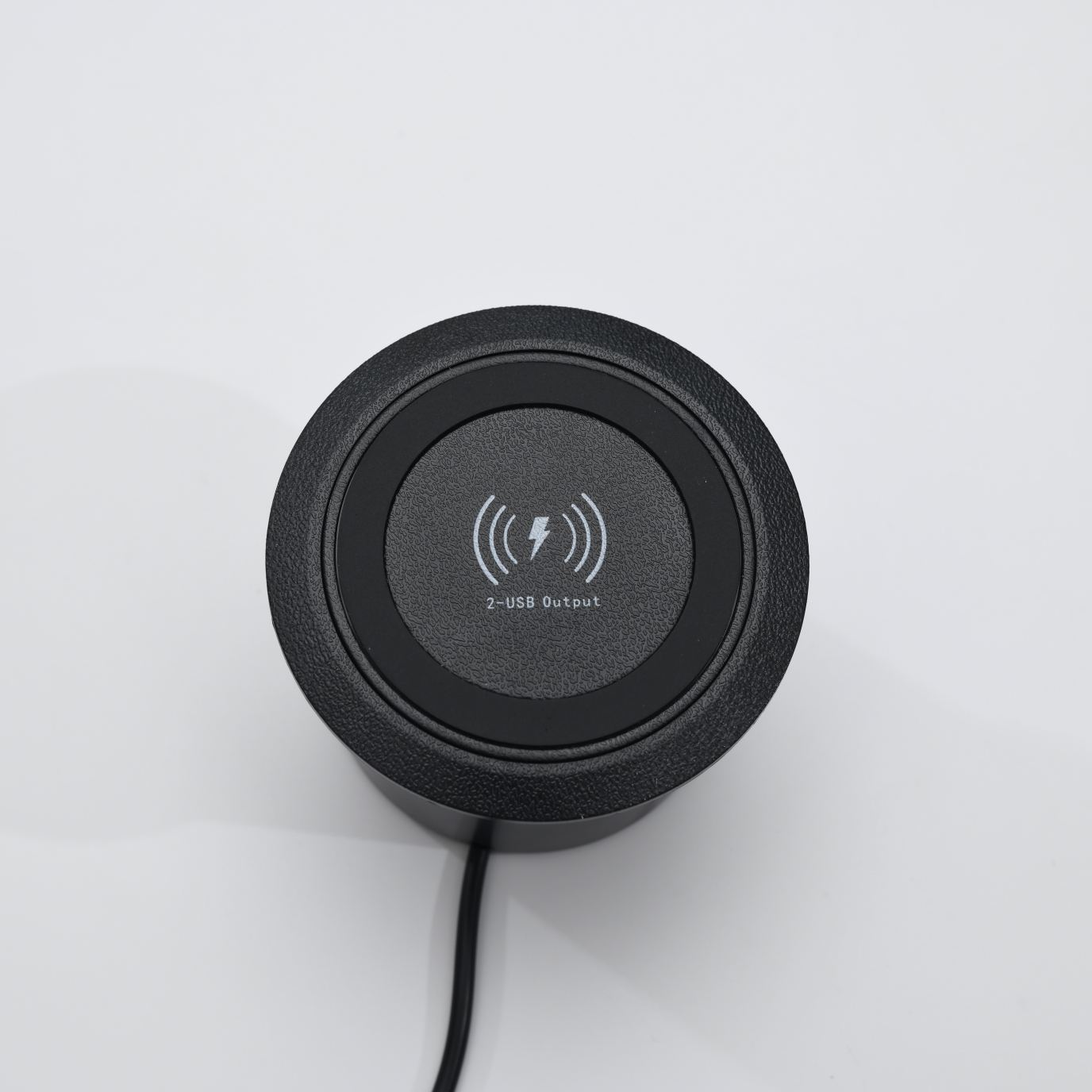Benefits of Using Wireless Chargers
Wireless Chargers have revolutionized how we power our devices, offering convenience and eliminating the hassle of tangled cables. As a company specializing in designing, producing, and selling Power Adapters, chargers, power sockets, household appliances, and peripheral products, we recognize the growing popularity and benefits of wireless charging technology. This article explores the advantages of using wireless chargers, highlighting their impact on convenience, efficiency, and user experience.

Understanding Wireless Chargers
Wireless chargers utilize electromagnetic induction to transfer energy from the charger to a compatible device without the need for physical connectors. They typically employ Qi technology, the universal standard for wireless charging, supported by a wide range of smartphones, tablets, and other electronic devices.
Key Components
1.Charging Pad: The surface where the device is placed for charging.
2.Transmitter Coil: Generates the electromagnetic field that transfers power to the receiver coil in the device.
3.Receiver Coil: Receives the transmitted power and converts it into electricity to charge the device's battery.
Benefits of Wireless Chargers
1. Convenience and Ease of Use
One of the primary advantages of wireless chargers is their convenience. Simply place your compatible device on the charging pad, and charging begins automatically. This eliminates the need to fumble with cables and ensures a hassle-free charging experience, particularly in environments like offices, homes, and public spaces.
2. Reduced Wear and Tear on Connectors
Traditional charging methods often involve inserting and removing cables, which can lead to wear and tear on device ports and cables themselves. Wireless chargers mitigate this issue by reducing physical wear on connectors, thereby prolonging the lifespan of both the charger and the device.
3. Enhanced Safety
Wireless chargers are designed with safety in mind. They incorporate features such as temperature control, overvoltage protection, and foreign object detection to prevent overheating and ensure safe charging conditions. This reduces the risk of accidents and damage to devices.
4. Flexibility and Versatility
Wireless chargers offer flexibility in positioning your device on the charging pad. Some models support charging in both portrait and landscape orientations, allowing you to continue using your device while it charges. This versatility enhances user convenience and productivity.
5. Minimalistic Design
Many wireless chargers feature sleek and compact designs that blend seamlessly into various environments. They can complement modern office spaces, bedside tables, or vehicle interiors without cluttering the area with cables.
6. Environmental Impact
By reducing the need for disposable cables and adapters, wireless chargers contribute to environmental sustainability. They promote energy efficiency and reduce electronic waste, aligning with global efforts to minimize ecological footprint.
7. Compatibility and Future-Proofing
Qi wireless charging technology is widely adopted by major device manufacturers, ensuring compatibility across a broad range of devices. As technology advances, wireless chargers are continually updated to support faster charging speeds and improved efficiency, offering a future-proof charging solution.
8. User Experience and Satisfaction
Overall, the convenience, safety, and eco-friendly nature of wireless chargers enhance user satisfaction. They provide a seamless charging experience that adapts to modern lifestyles, fostering a positive perception of both the charger and the associated devices.
Practical Considerations
1. Charging Speed
While wireless chargers offer convenience, they may have slightly slower charging speeds compared to wired chargers. Understanding the charging specifications of your device and charger can help manage expectations regarding charging time.
2. Device Compatibility
Ensure your device is compatible with Qi wireless charging technology before investing in a wireless charger. While most modern smartphones and devices support Qi, older or niche devices may require additional accessories or adapters for wireless charging compatibility.
Wireless chargers represent a significant advancement in charging technology, offering unparalleled convenience, safety, and environmental benefits. As a leading provider of power adapters, chargers, power sockets, household appliances, and peripheral products, we continue to innovate and deliver high-quality wireless charging solutions that meet the evolving needs of consumers worldwide. Embrace the future of charging with wireless technology and enjoy a seamless charging experience wherever you go.








